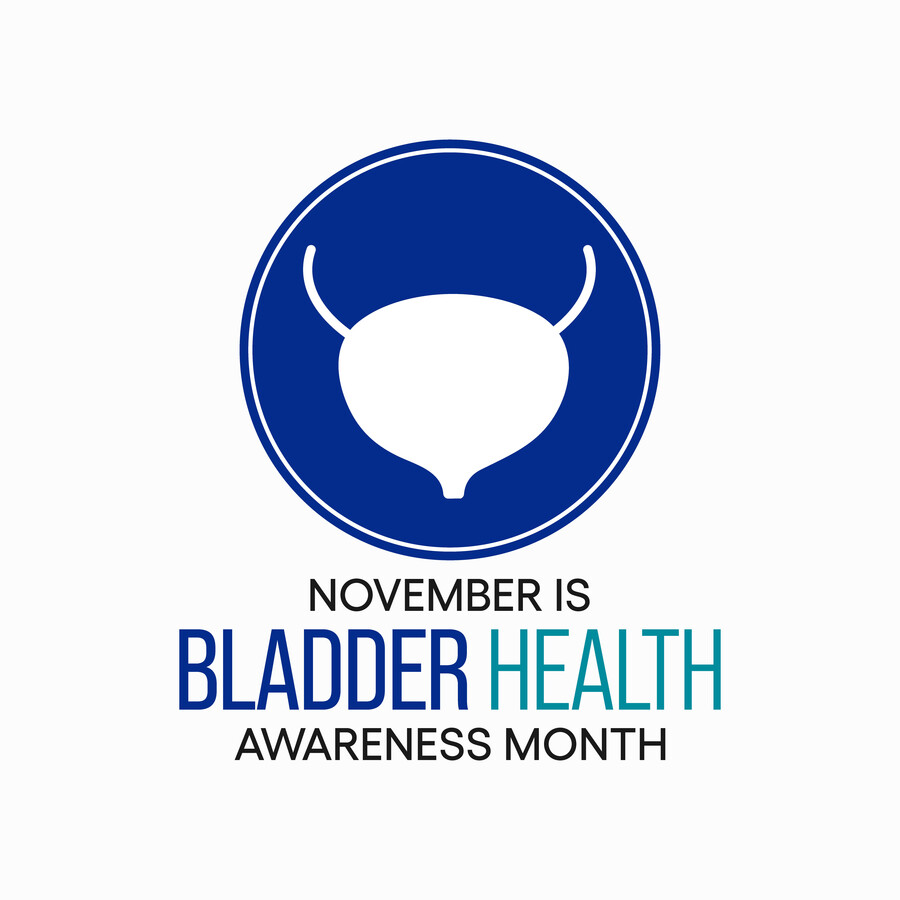~ by Carol Vartuli
Babies don't worry about their bladders, and we don't expect them to. In the first few years of life, a complex interplay between muscles, brain, and nervous system develops, so toddlers are eventually able to shed their Pampers.
It's ironic that adults who have been diaperless for decades can experience difficulty with bladder control. Hence, the plethora of ads about adult-sized, disposable drawers.
Urinary incontinence is just one aspect of bladder health that health care professionals highlight in November -- National Bladder Health Month.
According to studies at Johns Hopkins University, "More than 25 million Americans experience urinary incontinence, and interstitial cystitis affects up to 12 million adults in the United States.”
“It is estimated that more than 81,000 new cases of bladder cancer will be diagnosed in the United States in 2022. And with treatment for UTIs costing more than $1.5 billion a year, it’s clear that the effects of bladder health are wide-ranging." AAPC
A Humble Organ?
You may not think the bladder ranks high in the hierarchy of bodily organs. It's like a water pitcher that you fill, empty, and refill throughout the day.
But the bladder is more than a holding tank. It's integral to the urinary tract--a system including kidneys, ureters, urethra, and sphincter muscles. The job of this system is to filter waste and eliminate it from the body, regulate blood volume and blood pressure, control levels of electrolytes and metabolites, and regulate blood pH. The bladder is lined with special muscles that enable you to expel wastes.
Keeping your bladder healthy
The National Institutes of Health (NIH) offers 15 tips to keep your bladder healthy as you age. Several of the tips are identical to recommendations for preventing most health issues and diseases:
Every system in the body is reliant on those keys to good health. A diet low in fiber, for example, can lead to chronic constipation. When the colon puts pressure on the bladder, it can't expand properly.
Constipation, along with infections and certain medications, can cause temporary urine leakage.
Leaks Happen!
The stresses that millions of Americans experience urinary incontinence, or 'overactive bladder.' While prevalent in the older population, involuntary leaking occurs in younger people, too. It has various causes.
Diseases that damage nerves (such as Parkinson's disease, Diabetes, and Multiple Sclerosis) affect bladder function.
In women, pelvic organs, including the uterus, sometimes shift out of shape, or prolapse; this impacts normal bladder function. In men, urinary incontinence is commonly associated with prostate gland inflammation or enlargement, or with nerves and muscles that have been damaged by surgery.
Aging also reduces bladder tissue elasticity, making it unable to hold as much urine as it once did. The ability of nerves and muscles to signal the bladder declines, and weaker bladder walls and pelvic muscles can make it more difficult to empty the bladder completely, resulting in leaks.
Caution, Plus Good Habits
National Bladder Health Month reminds everyone how important the bladder and entire urinary tract are. See your urologist if you have any of the following:
- Inability to hold urine; leaking
- Needing to urinate more frequently or urgently
- Cloudy urine; blood in the urine
- Pain before, during, or after urination
- Trouble starting to urinate; having a weak stream
Even if you have no issues, stay hydrated all day by drinking enough fluids, especially water; you should need to urinate at least every three to four hours. Take the time to empty your bladder fully; holding urine too long weakens bladder muscles and can lead to bladder infection.
Read More:
https://www.urologyhealth.org
https://www.nia.nih.gov/health/15-tips-keep-your-bladder-healthy
https://www.augs.org/patient-services/bladder-health-month-resources/
The information in the above article is not intended nor implied to be a substitute for professional medical advice, diagnosis, or treatment. Always seek the advice of your physician or other qualified health provider with any questions you may have regarding a medical condition.
